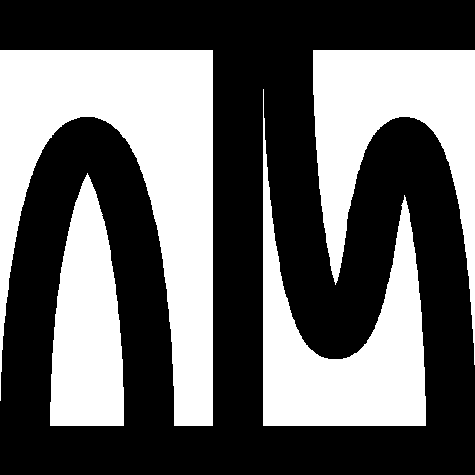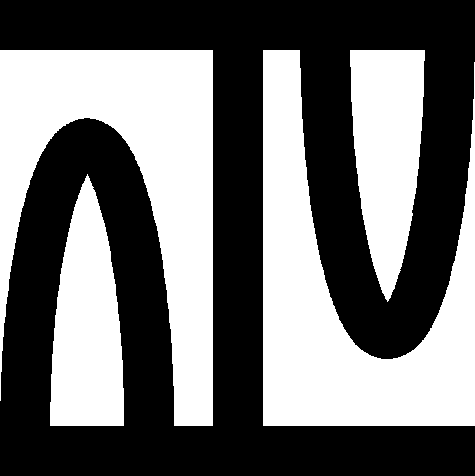:: BVFUNC14 semantic presentation 
 :: Showing IDV graph ... (Click the Palm Trees again to close it)
:: Showing IDV graph ... (Click the Palm Trees again to close it)
theorem Th1: :: BVFUNC14:1 
 :: Showing IDV graph ... (Click the Palm Tree again to close it)
:: Showing IDV graph ... (Click the Palm Tree again to close it) 
theorem :: BVFUNC14:2 
 :: Showing IDV graph ... (Click the Palm Tree again to close it)
:: Showing IDV graph ... (Click the Palm Tree again to close it) 
Lm1:
for B, C, D, b, c, d being set holds dom (((B .--> b) +* (C .--> c)) +* (D .--> d)) = {B,C,D}
Lm2:
for f being Function
for C, D, c, d being set st C <> D holds
((f +* (C .--> c)) +* (D .--> d)) . C = c
Lm3:
for B, C, D, b, c, d being set st B <> C & D <> B holds
(((B .--> b) +* (C .--> c)) +* (D .--> d)) . B = b
Lm4:
for B, C, D, b, c, d being set
for h being Function st h = ((B .--> b) +* (C .--> c)) +* (D .--> d) holds
rng h = {(h . B),(h . C),(h . D)}
theorem :: BVFUNC14:3 
 :: Showing IDV graph ... (Click the Palm Tree again to close it)
:: Showing IDV graph ... (Click the Palm Tree again to close it) 
theorem Th4: :: BVFUNC14:4 
 :: Showing IDV graph ... (Click the Palm Tree again to close it)
:: Showing IDV graph ... (Click the Palm Tree again to close it) 
theorem Th5: :: BVFUNC14:5 
 :: Showing IDV graph ... (Click the Palm Tree again to close it)
:: Showing IDV graph ... (Click the Palm Tree again to close it) 
theorem :: BVFUNC14:6 
 :: Showing IDV graph ... (Click the Palm Tree again to close it)
:: Showing IDV graph ... (Click the Palm Tree again to close it) 
theorem Th7: :: BVFUNC14:7 
 :: Showing IDV graph ... (Click the Palm Tree again to close it)
:: Showing IDV graph ... (Click the Palm Tree again to close it) 
theorem Th8: :: BVFUNC14:8 
 :: Showing IDV graph ... (Click the Palm Tree again to close it)
:: Showing IDV graph ... (Click the Palm Tree again to close it) 
theorem :: BVFUNC14:9 
 :: Showing IDV graph ... (Click the Palm Tree again to close it)
:: Showing IDV graph ... (Click the Palm Tree again to close it) 
theorem :: BVFUNC14:10 
 :: Showing IDV graph ... (Click the Palm Tree again to close it)
:: Showing IDV graph ... (Click the Palm Tree again to close it) 
theorem :: BVFUNC14:11 
 :: Showing IDV graph ... (Click the Palm Tree again to close it)
:: Showing IDV graph ... (Click the Palm Tree again to close it) 
canceled;
theorem :: BVFUNC14:12 
 :: Showing IDV graph ... (Click the Palm Tree again to close it)
:: Showing IDV graph ... (Click the Palm Tree again to close it) 
canceled;
theorem :: BVFUNC14:13 
 :: Showing IDV graph ... (Click the Palm Tree again to close it)
:: Showing IDV graph ... (Click the Palm Tree again to close it) 
canceled;
theorem :: BVFUNC14:14 
 :: Showing IDV graph ... (Click the Palm Tree again to close it)
:: Showing IDV graph ... (Click the Palm Tree again to close it) 
theorem :: BVFUNC14:15 
 :: Showing IDV graph ... (Click the Palm Tree again to close it)
:: Showing IDV graph ... (Click the Palm Tree again to close it) 
theorem :: BVFUNC14:16 
 :: Showing IDV graph ... (Click the Palm Tree again to close it)
:: Showing IDV graph ... (Click the Palm Tree again to close it) 
theorem :: BVFUNC14:17 
 :: Showing IDV graph ... (Click the Palm Tree again to close it)
:: Showing IDV graph ... (Click the Palm Tree again to close it) 
theorem Th18: :: BVFUNC14:18 
 :: Showing IDV graph ... (Click the Palm Tree again to close it)
:: Showing IDV graph ... (Click the Palm Tree again to close it) 
theorem Th19: :: BVFUNC14:19 
 :: Showing IDV graph ... (Click the Palm Tree again to close it)
:: Showing IDV graph ... (Click the Palm Tree again to close it) 
theorem Th20: :: BVFUNC14:20 
 :: Showing IDV graph ... (Click the Palm Tree again to close it)
:: Showing IDV graph ... (Click the Palm Tree again to close it) 
for
Y being non
empty set for
G being
Subset of
(PARTITIONS Y) for
A,
B,
C,
D being
a_partition of
Y for
h being
Function for
A',
B',
C',
D' being
set st
G = {A,B,C,D} &
h = (((B .--> B') +* (C .--> C')) +* (D .--> D')) +* (A .--> A') holds
rng h = {(h . A),(h . B),(h . C),(h . D)}
theorem :: BVFUNC14:21 
 :: Showing IDV graph ... (Click the Palm Tree again to close it)
:: Showing IDV graph ... (Click the Palm Tree again to close it) 
theorem :: BVFUNC14:22 
 :: Showing IDV graph ... (Click the Palm Tree again to close it)
:: Showing IDV graph ... (Click the Palm Tree again to close it) 
for
Y being non
empty set for
G being
Subset of
(PARTITIONS Y) for
A,
B,
C,
D being
a_partition of
Y for
z,
u being
Element of
Y st
G is
independent &
G = {A,B,C,D} &
A <> B &
A <> C &
A <> D &
B <> C &
B <> D &
C <> D &
EqClass z,
(C '/\' D) = EqClass u,
(C '/\' D) holds
EqClass u,
(CompF A,G) meets EqClass z,
(CompF B,G)
theorem :: BVFUNC14:23 
 :: Showing IDV graph ... (Click the Palm Tree again to close it)
:: Showing IDV graph ... (Click the Palm Tree again to close it) 
for
Y being non
empty set for
G being
Subset of
(PARTITIONS Y) for
A,
B,
C being
a_partition of
Y for
z,
u being
Element of
Y st
G is
independent &
G = {A,B,C} &
A <> B &
B <> C &
C <> A &
EqClass z,
C = EqClass u,
C holds
EqClass u,
(CompF A,G) meets EqClass z,
(CompF B,G)
theorem Th24: :: BVFUNC14:24 
 :: Showing IDV graph ... (Click the Palm Tree again to close it)
:: Showing IDV graph ... (Click the Palm Tree again to close it) 
theorem Th25: :: BVFUNC14:25 
 :: Showing IDV graph ... (Click the Palm Tree again to close it)
:: Showing IDV graph ... (Click the Palm Tree again to close it) 
theorem Th26: :: BVFUNC14:26 
 :: Showing IDV graph ... (Click the Palm Tree again to close it)
:: Showing IDV graph ... (Click the Palm Tree again to close it) 
theorem Th27: :: BVFUNC14:27 
 :: Showing IDV graph ... (Click the Palm Tree again to close it)
:: Showing IDV graph ... (Click the Palm Tree again to close it) 
theorem :: BVFUNC14:28 
 :: Showing IDV graph ... (Click the Palm Tree again to close it)
:: Showing IDV graph ... (Click the Palm Tree again to close it) 
theorem Th29: :: BVFUNC14:29 
 :: Showing IDV graph ... (Click the Palm Tree again to close it)
:: Showing IDV graph ... (Click the Palm Tree again to close it) 
theorem Th30: :: BVFUNC14:30 
 :: Showing IDV graph ... (Click the Palm Tree again to close it)
:: Showing IDV graph ... (Click the Palm Tree again to close it) 
for
A,
B,
C,
D,
E being
set for
h being
Function for
A',
B',
C',
D',
E' being
set st
h = ((((B .--> B') +* (C .--> C')) +* (D .--> D')) +* (E .--> E')) +* (A .--> A') holds
dom h = {A,B,C,D,E}
theorem Th31: :: BVFUNC14:31 
 :: Showing IDV graph ... (Click the Palm Tree again to close it)
:: Showing IDV graph ... (Click the Palm Tree again to close it) 
for
A,
B,
C,
D,
E being
set for
h being
Function for
A',
B',
C',
D',
E' being
set st
h = ((((B .--> B') +* (C .--> C')) +* (D .--> D')) +* (E .--> E')) +* (A .--> A') holds
rng h = {(h . A),(h . B),(h . C),(h . D),(h . E)}
theorem :: BVFUNC14:32 
 :: Showing IDV graph ... (Click the Palm Tree again to close it)
:: Showing IDV graph ... (Click the Palm Tree again to close it) 
for
Y being non
empty set for
G being
Subset of
(PARTITIONS Y) for
A,
B,
C,
D,
E being
a_partition of
Y for
z,
u being
Element of
Y for
h being
Function st
G is
independent &
G = {A,B,C,D,E} &
A <> B &
A <> C &
A <> D &
A <> E &
B <> C &
B <> D &
B <> E &
C <> D &
C <> E &
D <> E holds
EqClass u,
(((B '/\' C) '/\' D) '/\' E) meets EqClass z,
A
theorem :: BVFUNC14:33 
 :: Showing IDV graph ... (Click the Palm Tree again to close it)
:: Showing IDV graph ... (Click the Palm Tree again to close it) 
for
Y being non
empty set for
G being
Subset of
(PARTITIONS Y) for
A,
B,
C,
D,
E being
a_partition of
Y for
z,
u being
Element of
Y st
G is
independent &
G = {A,B,C,D,E} &
A <> B &
A <> C &
A <> D &
A <> E &
B <> C &
B <> D &
B <> E &
C <> D &
C <> E &
D <> E &
EqClass z,
((C '/\' D) '/\' E) = EqClass u,
((C '/\' D) '/\' E) holds
EqClass u,
(CompF A,G) meets EqClass z,
(CompF B,G)

































